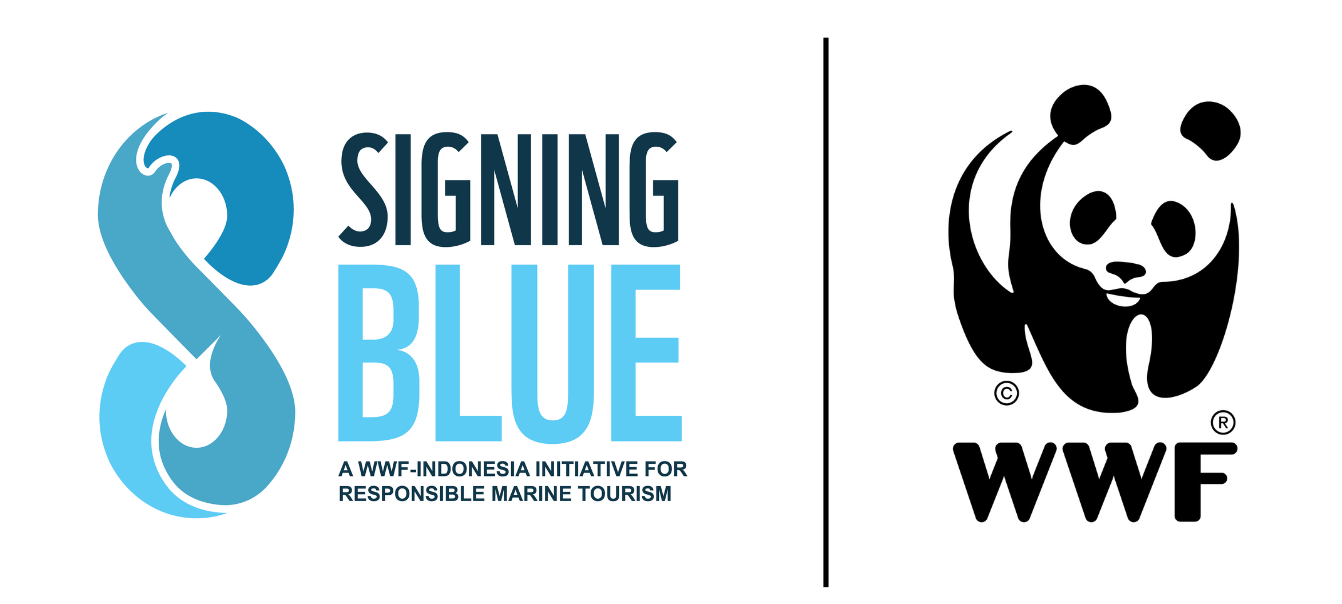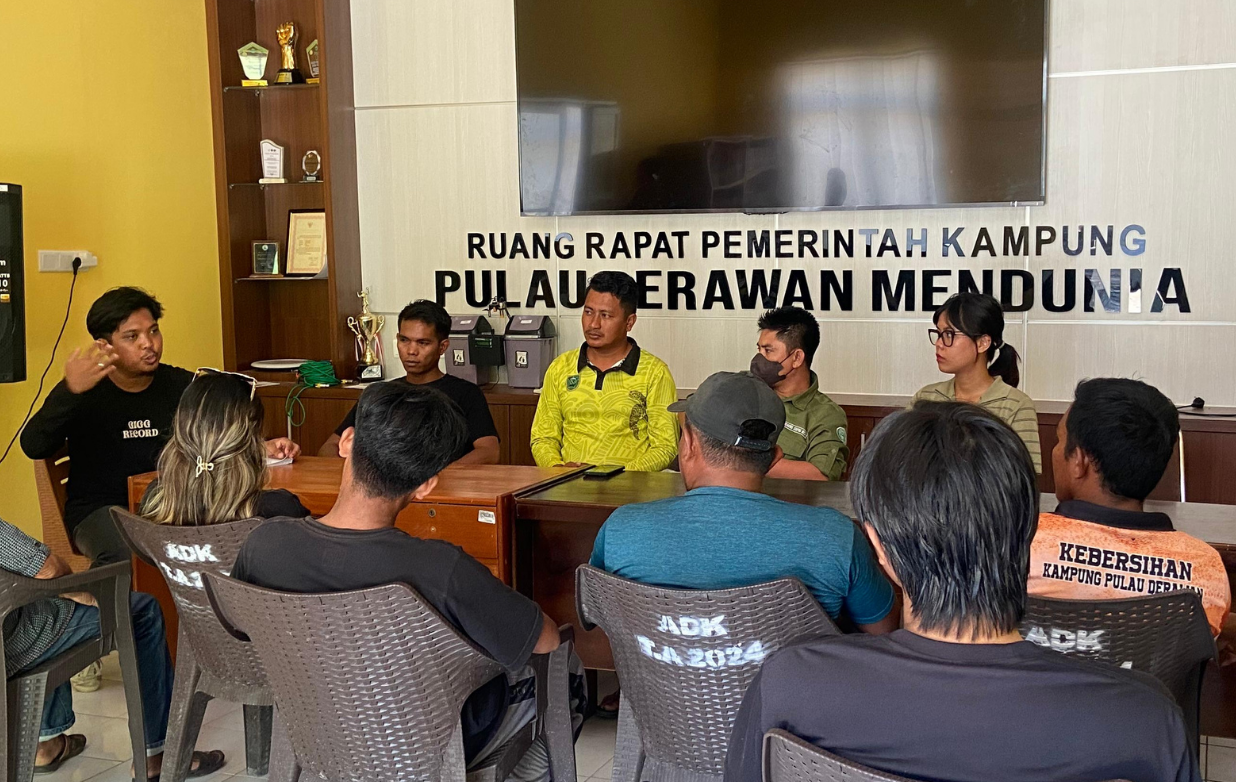READY TO BUILD TPS3R, DERAWAN ISLAND, EAST KALIMANTAN: WASTE MANAGEMENT FOR SMALL ISLANDS
Derawan, August 14, 2025. Derawan Island, a small island in Berau Regency, East Kalimantan, has gained international recognition as one of the prime marine tourism destinations. It serves as an entry point for visitors wishing to enjoy the coastal and underwater beauty. Iconic marine species such as turtles, whale sharks, and dolphins are frequently encountered in its waters.
Since the early 2010s, the rapid growth of the tourism sector on Derawan Island has brought positive impacts to the local economy. According to data from the Berau Regency Central Statistics Agency (BPS), the number of visitors to Derawan Subdistrict, both domestic and international, reached 34,160 people in 2024. However, despite the positive growth, significant challenges have emerged in environmental management, particularly waste management.
In 2023, approximately 80 non-residential buildings, including accommodations and restaurants, were actively serving tourists and locals. While playing a crucial role in supporting tourism activities, these buildings also became major sources of waste. On average, the total non-residential waste generated reached 46,105.1 kilograms per day, an astonishing amount for an island with only 44.6 hectares of land.
This situation highlights that without a more integrated and sustainable waste management system, Derawan, a conservation area, risks losing its appeal and ecological balance. Plastic waste pollution poses a threat to the health of the ecosystem and marine species, especially the turtles that are an iconic symbol of Derawan and Berau Regency.
The lack of a comprehensive waste management facility on Derawan Island has resulted in improper handling of most household and tourism waste. Waste is often burned, buried, or even directly dumped into the sea. This practice not only pollutes the environment but also threatens the marine ecosystem that serves as the backbone and major tourist attraction of the area. "Plastic waste has become a serious concern for both the local community and the government of Derawan Village," said Derawan Village Head, Indra Mahardika.
He emphasized that the current waste management system is still very limited. "We need better waste management. The waste is not sorted and is instead directly dumped into the final disposal site," he added.
Since June 2024, the Berau District Government, supported by WWF Indonesia and development consultants, has conducted surveys and developed the Master Plan for Sustainable Tourism Development on Derawan Island. The plan includes the development of an integrated waste management system as one of its main priorities.
The development of a Waste Management Facility based on the Reduce-Reuse-Recycle (TPS3R) concept in Derawan Village is a crucial part of implementing this master plan. The TPS3R will not only serve as a technical solution but also symbolize the commitment to maintaining the balance between tourism development and environmental conservation. Currently, few coastal conservation areas and small islands have waste management facilities, and Derawan needs to set an example for others.
The process of building the TPS3R in Derawan Village started from scratch, beginning with the purchase of a 20 x 20-meter plot of land. Legal steps were taken gradually, starting with securing land release letters from the Derawan Village Government and ultimately obtaining the Land Use Rights Certificate (SHP). Intensive coordination with various relevant departments has been carried out, and the construction permit has now been officially issued. The TPS3R construction is ready to commence.
Indra Mahardika, the Village Head of Derawan, has been actively supporting each stage of the process. "The legal and licensing procedures took quite some time, more than a year," he said.
WWF Indonesia has been assisting sustainability efforts in Derawan Village, particularly strengthening waste management to address the threat of plastic waste to the area and its species. WWF's support also includes guiding the community in changing behaviors related to single-use plastic consumption, improving local waste management capacity, and strengthening local economic initiatives that support sustainable practices.
"Through the development of the TPS3R, we hope the people of Derawan will be more supported and actively involved, not only in maintaining environmental cleanliness but also in sorting and managing waste as a valuable resource. This participation will strengthen the sense of ownership over the facility and create local business opportunities based on the circular economy," said Dr. Imam Musthofa Zainudin, Director of Marine and Fisheries Program, WWF Indonesia.
The TPS3R in Derawan is planned to begin construction at a groundbreaking event in early September. The presence of this facility will not only address environmental and aesthetic issues in the tourism area but also strategically strengthen Derawan's identity as a clean, sustainable, and responsible marine tourism destination. With the TPS3R, Derawan is reaffirming its commitment to sustainable tourism that benefits both nature and local communities.
Furthermore, as part of strengthening the TPS3R in Derawan Island, supporting equipment for waste management will be provided to aid daily operations. Training on waste sorting and processing will also be offered to local leaders and community members. The goal is for residents to manage waste independently, even turning it into economically valuable products. Proper waste management will create new economic opportunities on Derawan Island.
The hope is that Derawan Village can become a model for effective waste management for other small islands in Indonesia. Beyond infrastructure development, this TPS3R initiative reflects a spirit of collaboration between the community, government, and development partners in achieving sustainable and eco-friendly tourism. The TPS3R procurement process will begin with a ceremonial activity as a symbol of joint commitment to preserving the environment and improving the quality of life for local communities.

